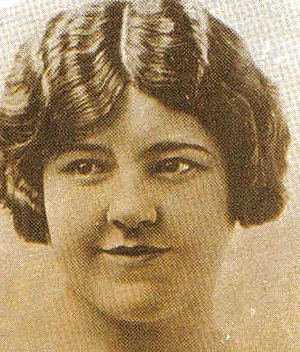Rosita Quiroga facts for kids
Rosita Quiroga was a famous Argentine singer, songwriter, and composer. Her real name was Rosa Rodríguez Quiroga de Capiello. She was born in Buenos Aires on January 16, 1896, and passed away on October 16, 1984. Rosita was the first woman tango singer from the poorer areas of Buenos Aires. She is best known for recording the very first song in Argentina, called La musa mistonga.
Contents
Who Was Rosita Quiroga?
Rosita Quiroga became a leading tango singer after 1920. Her singing style was known as canyengue. This style showed the life of people from the less wealthy parts of the city. She recorded her first music album in 1923. It was titled Siempre criolla.
Breaking Barriers in Radio
In 1923, Rosita Quiroga made history. She was the first woman to perform on Argentine radio. After her, many other talented women singers followed. These included Azucena Maizani, Libertad Lamarque, and Sofia Bozan.
Her Career and Music
The company RCA Victor supported Rosita when she became a radio host. Her first tango song was La tipa. She sang it with guitarist Enrique Maciel. The words for the song were written by Enrique Pedro Maroni. Early in her career, Rosita also sang in a duo with Rosita del Carril. She learned to play the guitar from Juan de Dios Filiberto.
Rosita Quiroga and RCA Victor started making music recordings in Argentina in 1926. In 1930, she performed at the Empire theater. The next year, she recorded four more songs. After that, she appeared on the radio from time to time.
Reaching Around the World
In 1938, Rosita Quiroga became the first performer from Argentina to be heard in Japan. This was a big achievement! She recorded music again in March 1952. In 1970, she traveled to Osaka, Japan. She was invited by a tango group there that was named after her. Rosita was also mentioned in a 1976 film called El Canto cuenta su historia. She stopped performing just a few days before she passed away in 1984. She was 88 years old.
See also
 In Spanish: Rosita Quiroga para niños
In Spanish: Rosita Quiroga para niños


